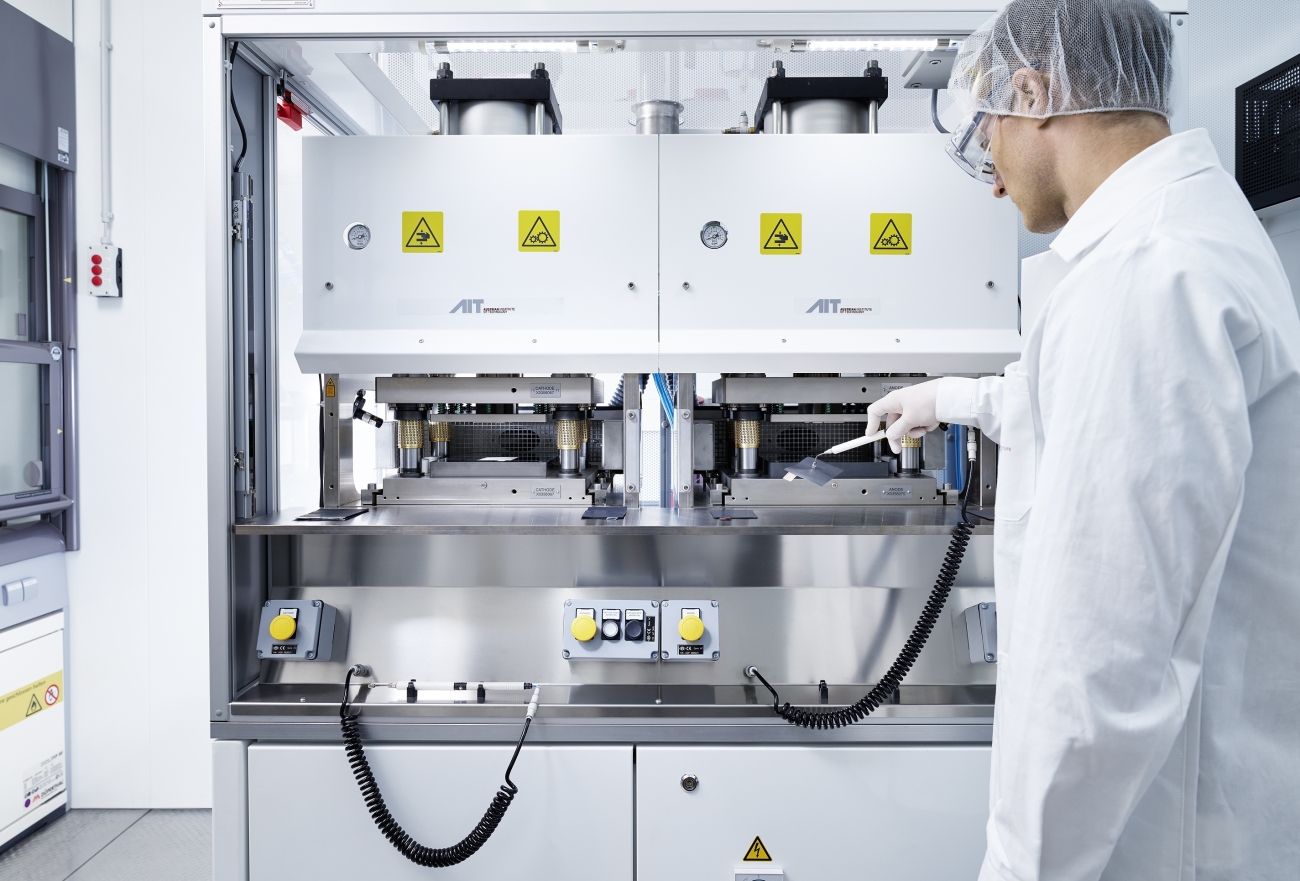Innovative solid-state batteries for a sustainable future
New battery technologies for increased safety, efficiency and environmental compatibility
The EU-funded research project HyLiST (Hybrid Lithium Metal-based Scalable Solid State Battery Manufacturing) was recently launched in order to make a decisive contribution to sustainable battery production in Europe. Under the leadership of the AIT Austrian Institute of Technology, an international consortium is working on the development of a new generation of solid-state batteries - more durable, more powerful and more environmentally friendly.
HyLiST is funded under the Horizon Europe program and aims to develop an innovative Generation-4b solid-state battery. It is intended to be produced resource-efficiently and particularly applied in the aerospace and automotive industries.
Within 36 months, a hybrid solid-state electrolyte will be developed which, in combination with a high-capacity, cobalt-free cathode (lithium nickel manganese oxide, LNMO) and a lithium metal anode (LiM), will significantly increase the performance and safety of solid-state batteries. By focusing on scalability and industrialization, the project strengthens European sovereignty in the field of battery technologies and reduces dependence on critical raw materials.
Scientific and economic impact
Through a three-stage approach, HyLiST will achieve significant progress in battery research and development:
- Material development and scaling: Development of a high-voltage LNMO cathode, an ultra-thin lithium-metal anode using PLD technology and polymer-based single-ion conductors. A life cycle analysis of the materials is also being carried out.
- Cell integration and validation: Optimization of electrode-electrolyte interfaces, production of monolayer and multilayer pouch cells as well as comprehensive performance and safety tests.
- Digitalization, recycling and sustainability: development of a digital twin and a battery passport, evaluation of the recyclability of components and life cycle analyses.
The innovative battery cells should be competitive due to resource-saving manufacturing processes and at the same time ensure higher energy densities, fast charging times and a longer service life. The results of the project will not only support industrial material manufacturers and research centers, but also strengthen the European value chain.
Consortium and international cooperation
HyLiST brings together an interdisciplinary consortium of 13 partners from 9 countries, including leading research institutes, universities, SMEs and industrial companies. This close cooperation ensures that all relevant aspects of the value chain are covered and that the research results can be quickly transferred to industrial applications.
The AIT Austrian Institute of Technology is coordinating the HyLiST project and contributing its extensive expertise in the fields of materials science and cell technology. In addition to project management, AIT is responsible for a central work package that focuses on scaling up the developed components into high-energy pouch cells. The feasibility and sustainability of the manufacturing processes are being investigated. The results of this work will provide valuable insights for future pilot production and help to drive forward the series production of solid-state batteries in Europe.
“With HyLiST, we are driving forward one of the most promising battery technologies of the future. Our goal is to bring solid-state batteries with high energy density and increased safety to market maturity. This will not only strengthen European competitiveness, but also make a decisive contribution to a sustainable energy supply and to achieving the climate targets of the European Green Deal and the Paris Climate Agreement,” explains Meisam Hasanpoor, AIT battery researcher and HyLiST project coordinator.
HyLiST is funded by the European Union under grant agreement No 101147688.







